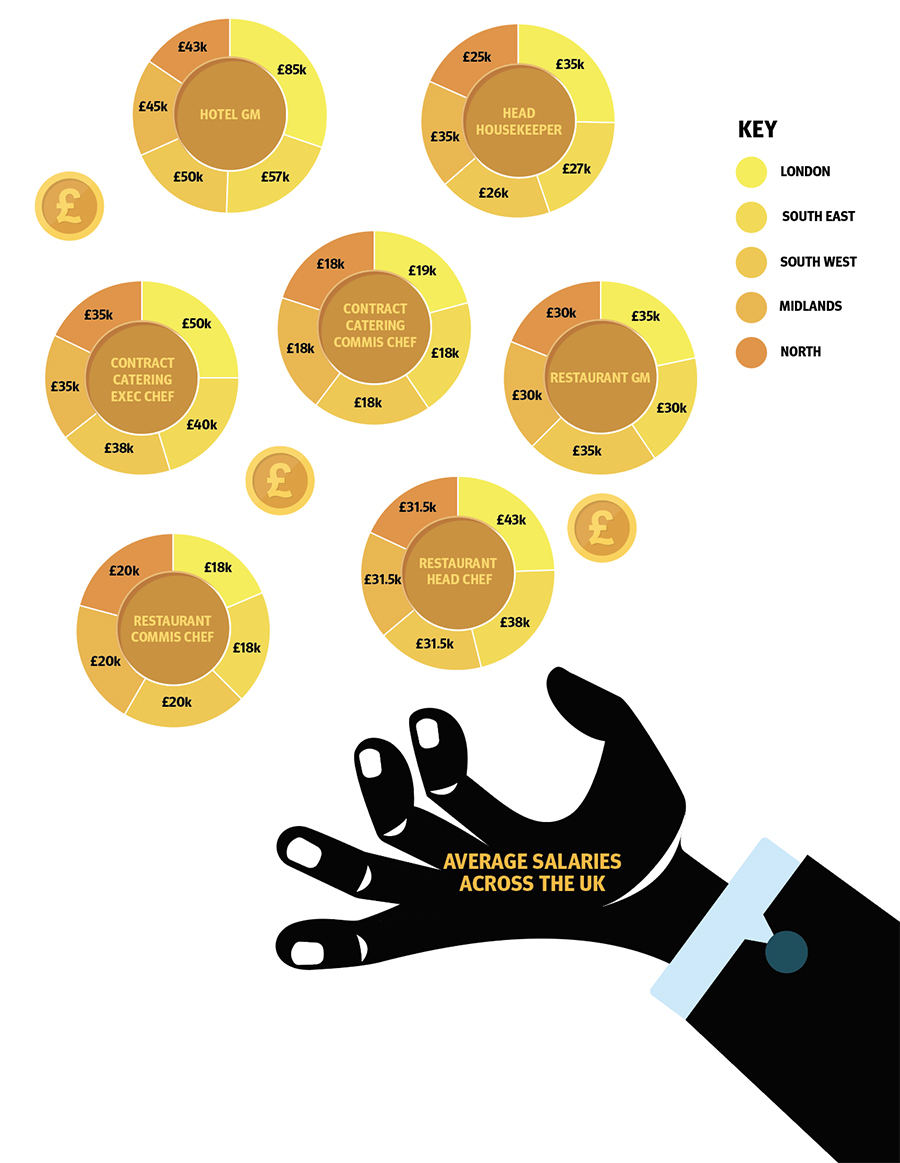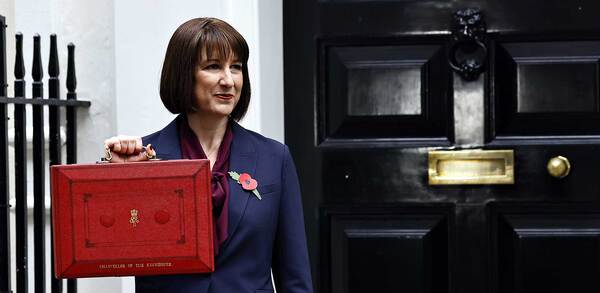Wage war: The problem with hospitality salaries
Although hospitality workers have never been more in demand, salaries across the industry have remained static. Emma Lake takes a look at the figures
Despite the industry's staffing crisis and a shrinking workforce from which to pluck talent, wages in the hospitality industry have remained stubbornly static.
Berkeley Scott's managing director Liam Humphreys said: "Key developments in the UK are unfortunately centred around lack of wage growth, despite increased demand for skilled workers and a reduction in available people. While this normally creates a candidate-led market and encourages wage growth, this has not been the case in our industry.
"The rise of minimum wage, employer pension contributions, cost of food and business rates have resulted in businesses being under enormous financial pressure. Despite this, there has been some positive movement in the last 18 months as more clients are prepared to dig deeper into their pockets to secure the right people - particularly in kitchen and specialist roles."
Year-on-year comparisons of the data show minimal salary increases in some areas, but with rates staying broadly flat at a time when living costs are increasing by approximately 2.4% a year, according to the Office for National Statistics (ONS).
The average hotel general manager salary remained static in London, the South West, the Midlands and the North, while seeing an increase from £45,000 to £57,000 in the South East.
Hotel executive chef salaries were static in London, the South East and the South West, but saw increases in the Midlands from £39,500 to £53,000 and the North from £39,500 to £42,000.
In contract catering, average salaries for executive chefs and head chefs remained static in London, the South East and the North. However, in the South West, both average salaries increased by £3,000, to £38,000 and £30,000 respectively. Comparatively, in the Midlands, while the average salary for an executive chef held steady, the average pay for a head chef fell from £30,000 to £28,000.
In restaurants, London head chefs were among the few included in the survey to see a significant year-on-year increase in average salary, from £30,000 to £43,000. In the South East, average salaries remained static; while the Midlands and North both saw a minor increase from £30,000 to £31,500. In the South West, however, average salaries fell from £32,000 to £31,500.
At the other end of the career ladder, hotel commis chefs saw their average salaries remain static in London (£18,000), the South East (£17,000) and the North (£16,000) with an increase from £13,000 to £18,000 in the South West and from £16,000 to £18,000 in the Midlands.
In contract catering, commis salaries remained static in London and the South East, while rising from £15,000 to £18,500 in the South West, Midlands and the North.
In restaurants, commis chef salaries were some of the few to be lower in London and the South East than the rest of the country. In the South West, Midlands and the North, commis chefs can command an average salary of £20,000, compared to £18,000 in the other regions.
In the case of commis chefs, some increase to the given salaries can be attributed to changes in the minimum wage, which increased from £7.50 to £7.83 for over-25s in April 2018; the equivalent of annual salary of £16,286.40 for a 40-hour working week. It can be assumed that many commis chefs will be working more than 40 hours a week, with Humphreys confirming many looked towards temp work over salaried positions due to the guarantee of being paid for hours worked.
The survey also showed that salaries can fall by as much as 50% for some positions across regions, while the difference between an average and maximum pay for a role can be more than 150%.
With living costs in London clearly driving up salaries in the city, one of the starkest differences seen in regional pay rates was for hotel general managers, who had a maximum salary of £200,000 in London, but £100,000 in the South West. A hotel operations manager can command up to £85,000 in the capital, but receives a maximum figure of £40,000 in the South West.
In contract catering, chefs saw larger regional differentials than senior managers: a head chef can command a maximum £60,000 in the capital, compared to a maximum of £30,000 in the North. In restaurants executive chefs could see differences in maximum salaries of up to 50%, for example, £100,000 in London compared to £50,000 in the South West.
The ONS found that between January 2018 and January 2019, the average salary in the UK went up by 3.4% (1.4% following inflation), but Berkeley Scott's research suggests that many working in hospitality will not have seen more money in their pockets.
With Brexit on the horizon, the staffing crisis is showing little sign of easing and employers will need to continue to think carefully about how to attract, develop and retain talent.
Humphreys added: "The overall unemployment rates continue to tumble and the acute problems of quality labour supply, particularly in the kitchen, are the number one challenge that business owners talk to me about. A number of our clients are investing heavily to develop talent for the future of the UK hospitality industry, which is a true global leader."
View the full 2019 survey here

















